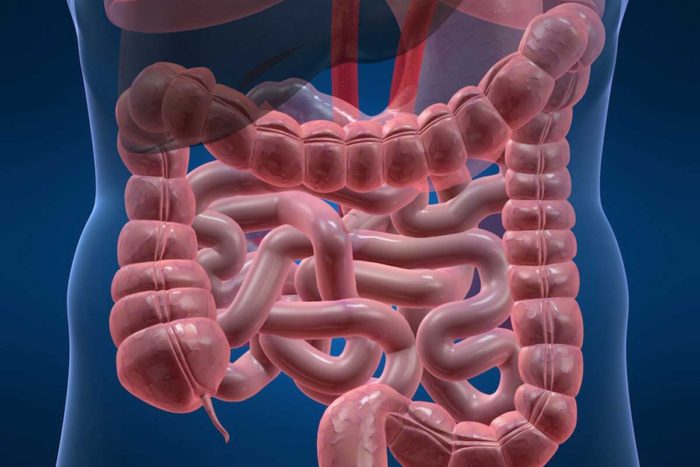Study finds unexpected player in immune-related gastrointestinal disorders
A new role for cells in the intestine has been identified. This may lead to new therapies for some intestinal disorders

Related audio:
Goblet cells in the intestine are already known to secrete mucus and help prevent attack from harmful bacteria. Now research at Washington University identifies a novel role for these cells: chaperoning food antigens, or proteins, across the intestinal lining and introducing them to the immune system so that it doesn’t attack these harmless proteins. The researchers reported their results in the journal Nature.
Their discovery sheds new light on the function of goblet cells, which line the surface of the intestine, and provides scientists with a potential target for therapies against inflammatory bowel disease, celiac disease and food allergies—disorders caused by inappropriate immune responses in the intestine.
“If you eat a harmless protein or antigen, it gets taken up in the intestine by immune cells called dendritic cells, and you become tolerant to it,” says co-principal investigator Rodney Newberry, MD, a Washington University gastroenterologist at Barnes-Jewish Hospital. “However, we didn’t know how the dendritic cells and these harmless antigens got connected. From our experiments, it appears that goblet cells deliver these antigens to the dendritic cells.”
Watching intestine in real time
Using a novel imaging technique, the scientists watched the inner workings of the intestine in a living mouse in real time. They observed as labeled antigens ingested by the mouse were passed by goblet cells to dendritic cells. Until now, scientists had thought goblet cells in the intestine had only one job, to secrete mucus.
According to co-principal investigator, Washington University pathologist Mark J. Miller, PhD, antigens start out on one side of that mucus barrier while the immune system’s dendritic cells are on the other side. “At any given time, there are goblet cells transporting antigens,” Miller says. “And that appears to be the mechanism to deliver food antigens and maybe even self-antigens to dendritic cells in order to induce tolerance to these antigens.” He adds that If the dendritic cells have access to antigens, they can educate the immune system that these antigens are harmless rather than infectious agents.
He says the findings are important because now scientists know that immune responses in the intestine may depend as much on the ability of goblet cells to transport antigens to dendritic cells as on what the dendritic cells then do with those antigens.






